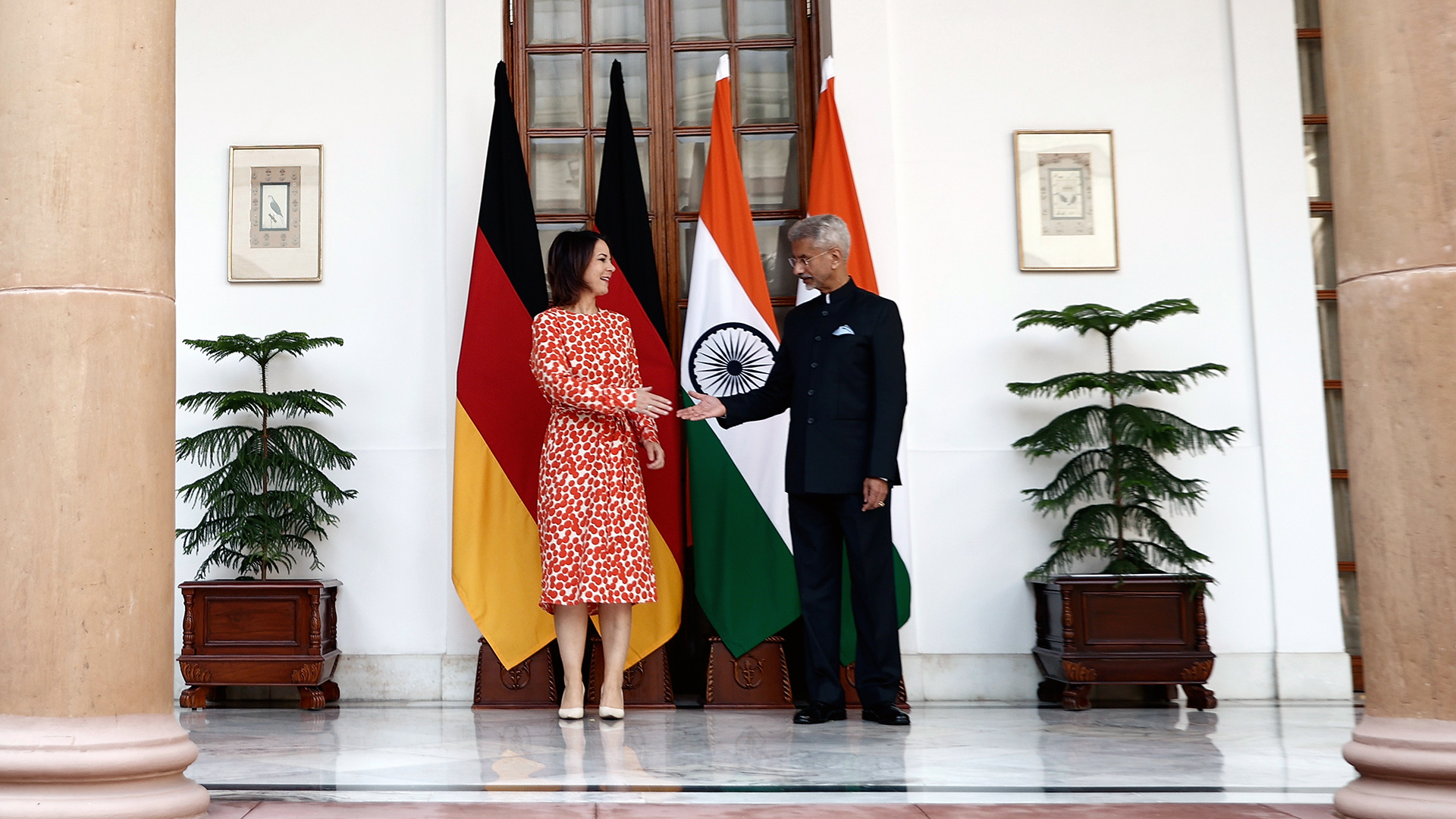Germany wants to further develop relations with India. There is “great potential” in the country, said Foreign Minister Baerbock at a meeting with her counterpart Jaishankar. The focus is on climate protection, migration and security.
Against the background of the Russian war in Ukraine and the dispute with China, Foreign Minister Annalena Baerbock sees India as a close ally and partner in values. India is currently not only assuming the G20 presidency, but also global responsibility, she said after a meeting with Foreign Minister Subrahmanyam Jaishankar in New Delhi. The Russian war against Ukraine also poses enormous challenges for India.
She underlined that India intends to prioritize climate protection during its G20 presidency. Germany and India want to further expand cooperation, for example in the accelerated energy transition away from coal, oil and gas, as Baerbock said. Germany stands by India as a partner for more climate protection and renewable energy. Indo-German cooperation in the field of security policy should also be strengthened, especially in the Indo-Pacific region.
Baerbock recognizes value partners
In connection with China, Baerbock emphasized that the country had changed significantly in recent years. That is why the exchange with direct neighbors like India is so important. There is great potential for cooperation with India in particular. However, India is not a substitute partner, said Baerbock when asked about China – Germany has long had a partnership of values with India.
Cautious reaction to EU price cap
Nuclear power India took over the presidency of the G20 group of leading industrialized and emerging countries on Thursday. The country with around 1.4 billion inhabitants does not support Western sanctions against Russia. It abstained from United Nations resolutions on the war in Ukraine. India is getting more cheap oil from Russia than before and continues to get armaments.Views of the war differ widely between New Delhi and Berlin. India’s Foreign Minister Jaishankar therefore reacted very cautiously to the European price cap for Russian oil. He pointed out that since the Russian attack on Ukraine began on February 24, Europeans have imported more fossil fuels from Russia than the next ten countries worldwide combined.”I understand that there is a conflict. The EU has its position,” he said. The priority for the EU is to take care of itself first. However, as the Europeans now increasingly bought fossil raw materials from the Middle East, they also drove up the prices for countries like India. He wishes that European governments would pay more attention to who is actually buying what and where.
Migration and mobility agreement signed
On the other hand, there is greater agreement between the German and Indian positions in other areas. Baerbock and Jaishankar signed a mobility agreement that aims to make it easier for people from both countries to study, research and work in the other country. Baerbock said the agreement will also significantly reduce waiting times for visa applications. Germany wants highly qualified specialists to be able to come to Germany more easily.Jaishankar spoke of a strong signal for a state-of-the-art partnership. Bilateral relations are comprehensive and deep – but more can be achieved.

